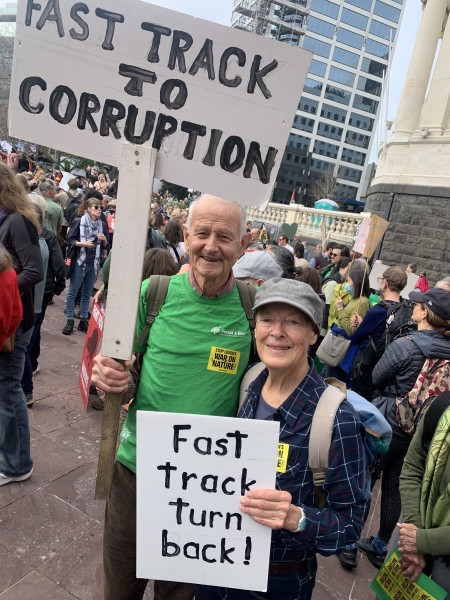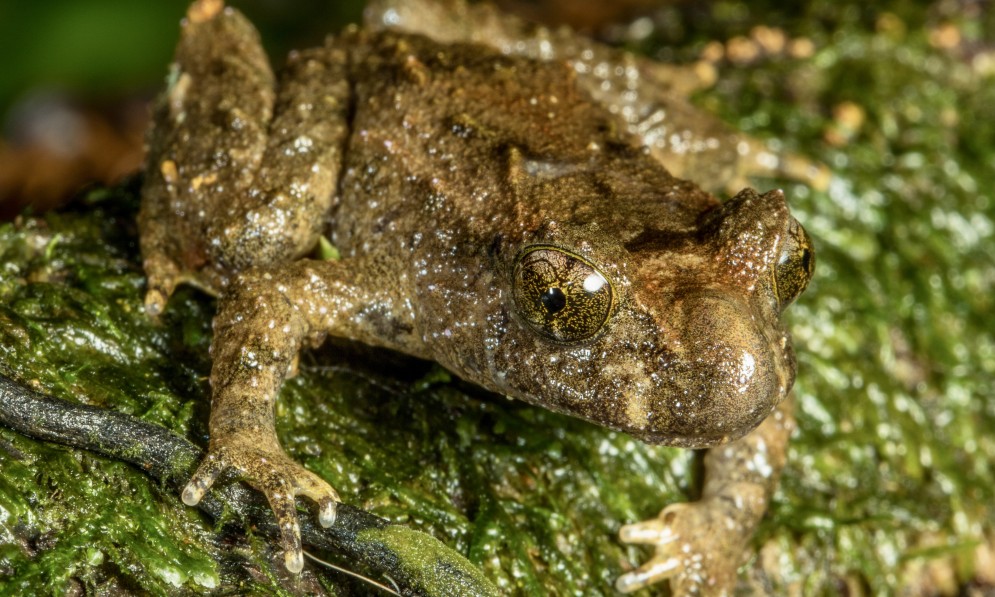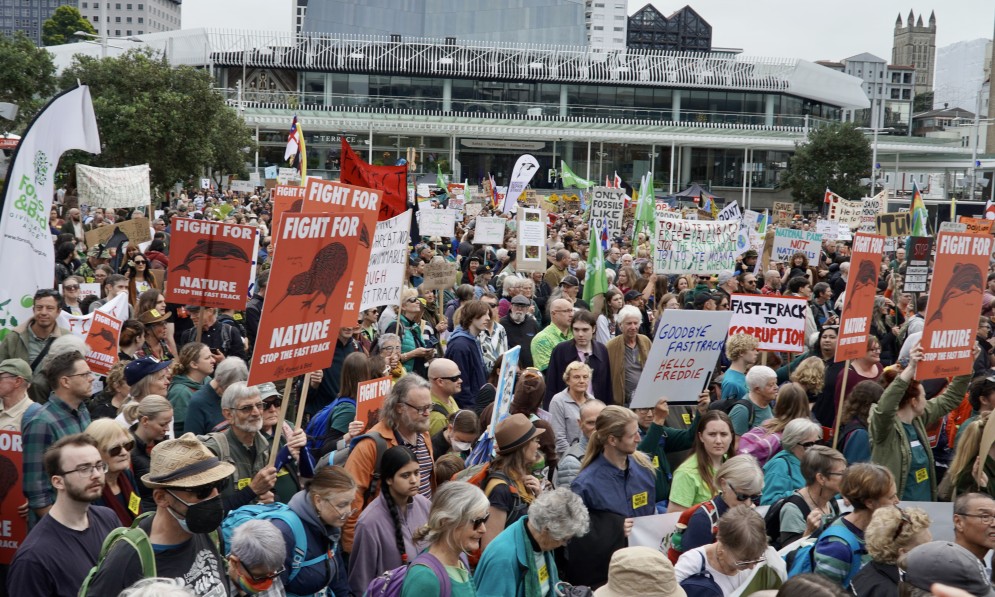Veteran conservation activist Ann Graeme reflects on a lifetime of environmental activism and progress.
Forest & Bird magazine
A version of this story was first published in the Spring 2024 issue of Forest & Bird magazine.
⏎There are few things more galvanising than a good protest, an action of defiance against a perceived wrong, with a touch of danger and a heap of camaraderie.
Oh, the happy days of the 1970s and 1980s when we fought to protect the destruction of our precious ngahere, the forests on Crown land.
We blocked roads, climbed trees, and infiltrated the offices of the mighty forestry companies to unfurl banners, strong in the knowledge that our cause was just, and the public were – mostly – behind us.
Forest & Bird led the way in establishing national parks such as Pureora and Whirinaki, protecting forests on private lands through the Forest Accord and helping create the Department of Conservation.
The euphoria was fleeting. It became clear that “saving” a forest from felling was not enough when its heart was being eaten out by pests.
The necessary but unhappy war on pests ramped up, leading to the vision and work of Predator Free 2050, although not yet addressing the threat from browsing pests, an issue Forest & Bird has been raising since the 1920s.
It also became clear that nature was still vulnerable as wetlands carried on being drained, rivers were being polluted, new dams threatened wild rivers, over-fishing imperiled fish stocks, and housing invaded fragile dunelands.
The simple strategy of protest was no longer suited to the myriad assaults on nature. Forest and Bird pioneered a new tactic.
The Resource Management Act of 1991 was of huge importance. It created a foundation that could be used to protect native habitat from development, euphemistically called “progress”.
Then, in the 2000s, Forest and Bird employed first one lawyer, then a team of lawyers, to defend nature through the courts. Over the years, they have won many important environmental legal battles that set precedents and case law to defend nature in the future.
Working with other conservation groups, legal defences were built to protect and conserve nature and to prevent ill-considered, destructive, and exploitative projects, such as flooding publicly owned forest to create the Ruataniwha dam, mining in protected native forests, sand mining, and mangrove destruction.
But those defences, built on evidence and reason, are being watered down by the present government and are being put in jeopardy by the Fast-track Approvals Bill presently before Parliament.
Its first iteration would have given unrivalled power to three Ministers, Shane Jones, Simeon Brown, and Chris Bishop. They could have authorised projects by ignoring the approval processes under the RMA and nine other sets of laws and regulations, including the Wildlife, Conservation, Reserves, Fishery, and Heritage Acts.
They could have consented projects unfettered by any of the laws and regulations so painstakingly created to protect nature.
No-one, including advocacy groups like Forest & Bird, would have been able to make submissions on individual projects, even involving conservation land or the sea, areas considered as public “commons”.

Distinguished life members Ann and Basil Graeme at the March for Nature. Image Forest & Bird
Zombie projects that have been thoroughly considered and killed by court rulings – such as a new open-cast mine at Te Kuha and the Ruataniwha dam and irrigation scheme – could be resurrected.
This was a bitter blow to all of us who have worked so long and so hard to protect the natural world through the law.
The Fast-track Bill is not only an assault on nature it is an assault on democracy of a scale never before seen in Aotearoa.
So we marched in our thousands down Queen Street in June as the only avenue to make our opposition known. Many older Forest & Bird members were there, veterans of past campaigns.
The government listened to our concerns and announced a major backdown just as this magazine went to print. The three Ministers will no longer green-light fast-track projects. An expert panel with environmental expertise will make the final decision.
It is shameful that we should have needed to march. It is even more shameful that “fast track” expediency should be used as an excuse for an assault on democracy.
We allowed that sort of executive power to defend citizens from the Covid pandemic. We will not allow it for a war on nature.
Should the feared onslaught on nature come to pass, we shall march again for our beloved and beleaguered wild places and wildlife, and for our democracy.
Civil disobedience will become obligatory. It will be time to get our boots on.
Forest & Bird will keep up the pressure on the government about its flawed Fast-track Approvals Bill. Thank you to everyone who raised their voices to make a submission, signed our petition, wrote to their MP, or attended the Auckland March for Nature in June. Our wildlife can’t speak for themselves and neither can what’s left of our natural world. The Bill in its revised form still prioritises economic development over environmental protection.
ONE-OF-A KIND FROGS
New Zealand endemic frogs or pepeketua were here in dinosaur times, 70 million years ago, and they are little changed today.
There are three species, Archey’s frog, Hamilton’s frog, and Hochstetter’s frog. Unlike all the other frogs in the world, they don’t croak and they don’t have tadpoles. Their eggs hatch into little froglets, which initially hitch-hike on the father’s back.
Pepeketua populations are already tiny, reduced by shrinking forests, introduced predators, and disease, and no, Shane Jones, we won’t let you imperil them further with a fast-track bulldozer!

Hochstetter's Frog. Image Shaun Lee

